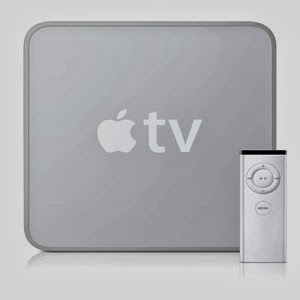Wednesday, February 26, 2014
48 hours later...
When we were first told about this assignment, I was kind of excited. Sometimes I get so sick of having a phone with me all the time when people expect me to answer it anytime they call or text. The last few months I have had my phone primarily on vibrate only, so I can't hear it go off very often :)
I started February 15th Saturday night, which wasn't hard, as I usually put my phone in my room for the night around 7. The next day I went to the parade of homes with a few family members. It was nice not having my phone with me, people asked me for the time or to map directions and I told them I couldn't! We did the parade of homes for about 8 hours, so it was easy not to have my phone with me. After we got done with the parade, that night a few people sat and watched a movie. I went in the other room with a few people and played some games, which was more fun anyway.
Sunday we went to a few more houses on the parade of homes. We got done earlier than yesterday, so I thought about getting my phone, then remembered it was at home! When I got home I did think about playing words with friends, as its one of my favorite apps. Then remembered I couldn't play. So I grabbed a book and read for a while.
It wasn't too hard for me to go without my devices for 48 hours. I did miss checking instagram and playing words with friends. but other than that, I was fine.
Sunday, February 23, 2014
New Media Convergence
TV survey:
Screens to watch TV on:
Smart TV's
Tablets
Computer
Smartphone
How to watch TV:
Amazon Instant Video (formerly Amazon Video On Demand) is an Internet video on demand service offered by Amazon.com in the United States. It offers television shows and films for rental and purchase. The service debuted on September 7, 2006, as Amazon Unbox. On September 4, 2008, the service was renamed to Amazon Video on Demand.
Computer
Smartphone
How to watch TV:
Netflix was founded in 1997 in California by Marc Randolph and Reed Hastings, For only $7.99 a month, instantly watch unlimited movies & TV episodes streaming over the Internet to your TV via a PS3, Wii, Xbox 360 or any other device that streams from Netflix. You can also watch instantly on your computer too!
Amazon Instant Video (formerly Amazon Video On Demand) is an Internet video on demand service offered by Amazon.com in the United States. It offers television shows and films for rental and purchase. The service debuted on September 7, 2006, as Amazon Unbox. On September 4, 2008, the service was renamed to Amazon Video on Demand.
The Hulu venture was announced in March 2007 with AOL, MSN, Facebook, Comcast, Myspace and Yahoo! planned as "initial distribution partners". Jason Kilar was named the CEO in June 2007. Hulu is one of the best places to find free, full-length, high quality movies and television shows on the Web today.
Wednesday, February 19, 2014
Friday, February 7, 2014
First Assessment
I don't fully believe that social media changes our opinions, I think that we are open to other peoples opinions, but we rarely change ours just for the sake of settlement. It seems to be a never ending cycle. One thing that has changed is the fact that more people are speaking out for their own beliefs, as well as for the support of others..
This article had some great statistics.
"The long-term shift in the public’s views about same-sex marriage is unambiguous. Polling conducted in 2003 found most Americans (58%) opposed to allowing gays and lesbians to marry legally, and just a third (33%) in favor. The new survey by the Pew Research Center, conducted March 13-17, 2013 among 1,501 adults nationwide, confirms that these figures have crossed, with 49% supporting same-sex marriage, and 44% opposed"
Facebook helps to spread viral videos that can change our thoughts, which I think for the most part is positive. It allows for collective dialogue. For example, I am not a big live TV watcher, so I didn't watch the Grammy's (Plus it doesn't really interest me) but I happen to be on Twitter while the Grammy's was airing. For 2 hours most of the Tweets I saw was about the Grammy's and winners. I then saw a few Tweets about Macklemore and Ryan Lewis's appearance on the Grammy's singing "Same Love". I then went to my Facebook feed and saw that a few of my gay friends had posted about the video. I didn't take the chance to look it up, but it did spark an interest. The next few days I heard (read) more and more about the performance. Finally I decided to check it out and see what it was all about since several of my friends had mentioned it.
Another example from last year when Facebook was covered in red all around the nation. What do I mean by that? When thousands and thousands of people changed their profile pictures to the red equals sign.
People put this image as their profile picture for days letting other people know that they supported marriage equality. After a few short days this went viral. People that were not familiar with the sign, questioned their friends about it and brought more awareness to equality. Facebook helps to keep us informed and aware about whats going on.
Subscribe to:
Comments (Atom)







.jpg)






.JPG)
